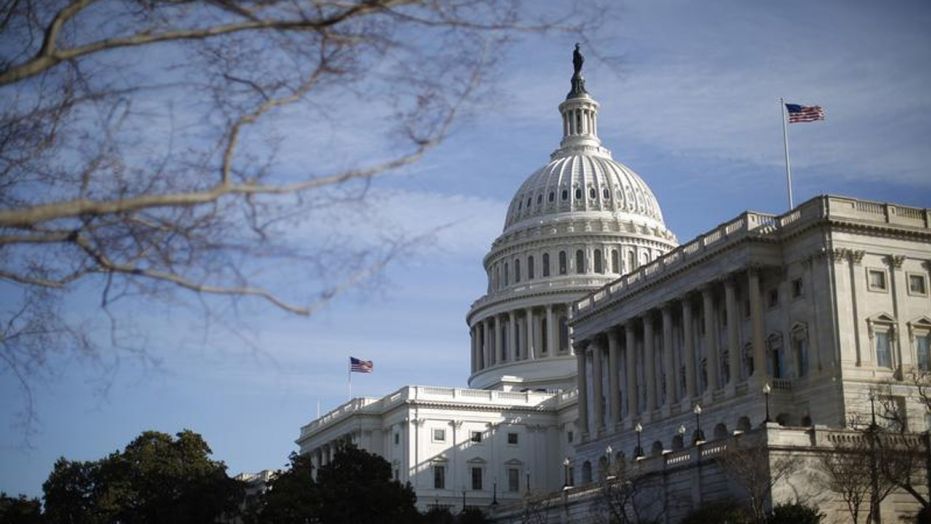Capitol Hill’s sexual harassment scandal reignites debate about thrifty lawmakers sleeping in their office
Capitol Hill’s sexual harassment scandal reignites debate about thrifty lawmakers sleeping in their office

They may be members of Congress, but they didn’t sleep at a Holiday Inn Express last night. They probably slept in their offices on Capitol Hill.
When Congress meets, dozens of lawmakers catch their z’s in the Spartan accommodations of the Rayburn Ramada, the Longworth Motel 6 or the Cannon Airbnb.
It’s a nightly ritual in the halls of Congress. Lawmakers retreat to their offices in the Rayburn, Longworth and Cannon House Office buildings, inflate an air mattress or wheel out a rollaway cot, then turn in for the night.
Many shave and brush their teeth in the personal sinks attached to each office suite. But members have to lope down to the House gym in the basement of the Rayburn Building to shower.
Freshmen lawmakers often make a big production to local media, touting their intentions to sleep in their offices. They make a point of telling constituents they’ll eschew renting or buying in D.C., lest they’re perceived as “going Washington” and forgotten about the little guys back home.
So they stage elaborate photo ops with their sleeping bags and Murphy Beds to demonstrate how they intend to rough it in the big city.
They came to Washington — but they don’t really want to be here.
It’s a good way to demonstrate fiscal prudence to the voters and make a mark when you’re new to the district. Lawmakers can burnish their image and score some free press when they don’t have many legislative bona fides on their resume yet.
The office sleeping practice has been in question for years. “Good government” groups question whether federal office accommodations resemble a perquisite for lawmakers. They don’t have to rent an apartment or purchase a house when they work in Washington. Instead, they just camp on the floor – on the federal dime.
In other words, taxpayer subsidized lodging, which amounts to a skimping on taxes. Never mind that federal law and House rules bar lawmakers from using “official resources” for personal purposes.
So, what you get is a bizarre version of “public housing,” not far from the marble corridors, statues and historic artwork which adorns the Capitol complex.
Some lawmakers view the practice as unseemly and beneath the dignity of Congress. That’s why late House Speaker Jim Wright, D-Texas, barred office sleeping. Former House Speakers Nancy Pelosi, D-Calif., and John Boehner, R-Ohio, never slept in their offices. But House Speaker Paul Ryan, R-Wis., certainly does and has bragged about it.
But now there’s a bigger question. Various sexual harassment scandals now embroil Capitol Hill. Multiple female aides who work for members of both parties have expressed concern to Fox about their bosses converting their congressional quarters into a bedroom at night — especially when they’re still toiling at the Capitol late or early in the morning.
That said, none of the aides indicated there was ever an incident. But perception reigns in politics. And by far, the number of lawmakers who live in their offices skews predominantly male.
“It’s just awkward,” said one female aide who asked not to be identified. “It can be uncomfortable.”
Ryan defended the couch-surfing when asked if it should continue amid the sexual harassment climate sweeping Capitol Hill.
“It’s more of a convenience thing,” said Ryan, arguing he didn’t see how the practice was “connected” to issues involving workplace sexual harassment.
“We sleep in our offices because we work until midnight and get up early,” he said. “We don’t see our staffs. I never see my staff when I return.”
To be clear, nobody has ever suggested inappropriate conduct involving the speaker.
But many aides say they do see their lawmaker bosses loping around the office at night when they’re working late or trekking back and forth to the House gym early in the morning in sweats and shower sandals.
Ryan is right about the convenience factor. Members work strange hours when in Washington. There are late-night votes and committee hearings. Fundraisers. Meetings at 9 and 10 p.m. with colleagues. But plenty of lawmakers also live just a few blocks away from the Capitol in efficiencies or studio apartments.
Others are happy to put a few miles between them and Capitol Hill, renting or buying across the river in Arlington or Alexandria, Va. Some even live in Maryland.
Cost is an issue, too. Rank and file House and Senate members take in $174,000 a year. That’s good money. But it’s not a lot when a lawmaker has to maintain residences back home and in high-cost Washington. Tiny apartments consuming 700 square feet may run as much as $2,000-plus a month.
It’s little surprise that some lawmakers room together in group houses close to the Capitol. It’s expensive when many members of Congress have families back home, are trying to be thrifty as they put kids through school or caring for aging parents.
A cost of living adjustment? Lawmakers are often loathe to vote themselves a pay increase for fear of voter backlash. Some assert that lawmakers deserve cost of living benefits — especially if the country wants to attract good people to represent them in Washington.
They also make the case that congressional pay should be competitive. Otherwise, Washington will only attract lawmakers who are independently wealthy and can afford to buy or rent a place off Capitol Hill.
Members of Congress are extremely concerned about maintaining a solid reputation. The frugality of sleeping in their offices certainly helps underscore the idea that lawmakers don’t bask in the glory of Washington and “go native.”
By the same token, allegations of sexual harassment involving multiple members — spurring the resignations of Sen. Al Franken, D-Minn., and Reps. John Conyers, D-Mich., and Trent Franks, R-Ariz. — could alter the calculus.
Some lawmakers could discreetly ditch the office futons and couches for a small apartment not far from the Capitol. They could then avoid the appearance that there could be a problem with them crashing in their offices.
It’s unclear exactly how many House and Senate members set up residences in their offices when Congress is in session. But when nightfall comes in Washington, the Capitol doubles as “The Nation’s Innkeeper.”













